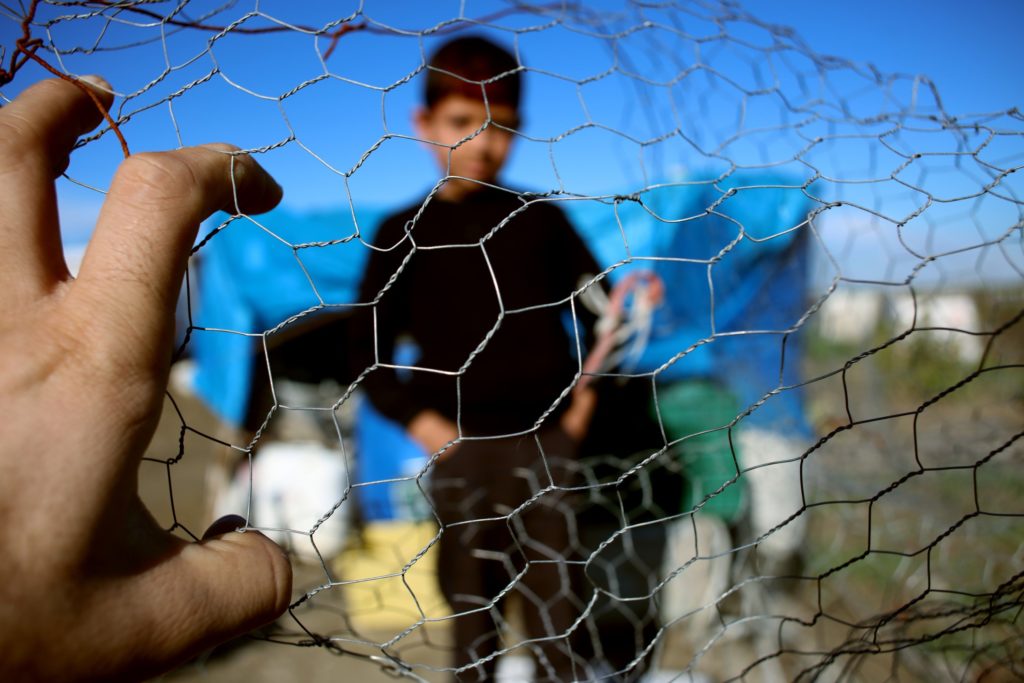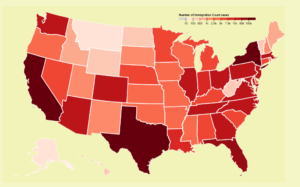As the climate surrounding illegal immigration remains heated and unresolved, more and more immigrants are detained at the border or have their undocumented status discovered, resulting in arrest and possible deportation. In cases where these adults are parents, US born and non-native children are scattered, sometimes miles away from their families, sometimes in completely unfamiliar homes.

Such was the case for six-year-old Wilder Maldonado and his father when they turned themselves in after crossing the border, not realizing how strict border security had become. Wilder spent 7 months in a United States foster home until being reunited with his family in eastern El Salvador , according to a ProPublica article. But this reunification, like many others, was not an easy transition for the boy who had experienced certain physical comforts like his favorite – long, warm showers – that he may never have again.
And so it was for Araceli Ramos and her then two-year-old daughter, Alexa, when Ramos was arrested at the border on criminal allegations fabricated by her ex-husband in Guatemala, according to NBC News. Alexa was taken and legally adopted by an American family, but the adoption agency did not notify Araceli. After five years and $1 million in donated legal fees, Araceli and Alexa were reunited, but only after Alexa spent 15 months of her life without her mother.
Changes for Undocumented Immigrants
And now, 300,000 individuals who were previously protected under the Temporary Protected Status program (TPS) in the US are on alert. This year, the Trump administration ended the TPS program for immigrants from El Salvador, Haiti, Nicaragua and Sudan. This protective act was typically awarded to undocumented immigrants seeking asylum from countries that had experienced a natural disaster. With the removal of this protective law, the number of Haitian immigrant deportations rose from 300 in 2016 to 5,500 in 2017. This change has caused numerous immigrants, including some of the parents of the 50,000 children who are effected by its removal, to sue the government, according to an article on the Daily Journal ’s website.
Jessica Vaughan, policy director of the Center for Immigration Studies, explains that “interior enforcement has been stepped up under the Trump administration,” and since more people overstay their visas than cross the border illegally, it is a high priority of the Trump administration to go after these immigrants.”
In the midst of tighter interior enforcement and border controls, more and more children are at risk of being placed in out of home care. But for some children, there are rules in place to keep them in a familiar environment and culture. This year, Maryland and New York set up “standby guardian laws”, which allow undocumented parents to choose a temporary guardian for their children if they are arrested or deported on immigration charges. The laws passed overwhelmingly with bipartisan support. At the bill signing in New York, Lieutenant Governor Kathy Hochul said:
With this legislation, immigrant parents facing possible deportation from New York can choose a guardian who they know and trust to care for their children. With hundreds of children being placed in facilities in New York and struggling with the trauma of being separated from their families, this is an important step forward…
Difficulties of Kinship Care for Undocumented Families
New York’s standby guardian policies allow a primary caregiver or legal guardian to specify a standby caretaker to maintain custody for up to 12 months. This statute is crucial for the children living in immigrant families, a number that from 2009 to 2013 was 5.1 million. (The number of children living with undocumented immigrant families remains unclear.)
While evidence varies, many studies show that it is ideal for children to remain with their own family in the form of kinship care rather than being removed and placed in foster care. Remaining in the familiarity of one’s family can be less traumatic than experiencing an entirely new environment in a traditional foster home. In a study, children in kinship care experienced increased placement stability compared to those
in traditional foster care, which may lead to better life outcomes.
While their common ground is often overlooked, kinship care and states’ child protective services have the same goal: giving children the best chance at the best life. While kinship care seems logical and beneficial, across the United States, the funding provided to kinship caregivers varies. In states like Kentucky, the benefits for kinship caregivers are much more minimal than those given to licensed foster caregivers.
Having an immigrant member in a kinship care family can compound the financial burden of providing kinship care. While it varies from state to state, most do not allow undocumented immigrants to become legal kinship caregivers, which means they may lack access to state benefits that licensed foster parents receive and may need to seek help through other public assistance. In South Carolina, record check procedures may prevent undocumented immigrants from becoming licensed foster caregivers. And according to the American Bar Association:
Of the 20 states identified with explicit foster licensing standards that require U.S. citizenship or some form of documented immigration status, only three – Massachusetts, New Jersey, and Oregon – explicitly exempt kin from the immigration status licensing standard, thereby allowing eligible undocumented immigrants to obtain full licensure. Conversely, three other stares, Arizona, Michigan, and Mississippi, clearly state that the immigration status requirement may not be waived, even for kin.
Even lawful immigrant citizens have restricted access to income support programs based on the 1996 Personal Responsibility and Work Opportunity Reconciliation Act (PRWORA), often referred to as welfare reform, which made many immigrants ineligible for federal financial assistance.
If an undocumented kinship provider manages to receive financial support, doing so may put their future citizenship at risk. Current immigration law requires those seeking green cards to prove that they will not be a burden on the public, or a “public charge”. So, if someone seeking documentation has accepted or will require assistance from SNAP, Medicaid, Section 8 housing benefits or other forms of public assistance, they could be denied citizenship. At the time of publication, the Trump administration is pushing for greater restrictions on obtaining a green card if an immigrant has received public assistance. Between 2008 and 2013, 8 percent of children living with an undocumented parent in the United States were in poverty, which suggests that they would require public services. This vicious circle creates a complex situation for undocumented kinship caregivers to navigate.
New Jersey’s Response to Increased Immigration Arrests
Proposals in New Jersey and Pennsylvania mirror efforts in Maryland and New York. The New Jersey plan suggests that the “triggering event” during which a standby guardian would take custody would include “administrative separation” which covers deportation for immigration violation. Maryland and New York have used this strategy to allow the law to apply to the children of deported immigrants.
This is important because in New Jersey, immigration restrictions have affected 90 percent of New Jersey municipalities. There are 31,015 pending immigration cases in the state, the fifth largest caseload in the nation, according to data from the Transactional Records Access Clearinghouse Immigration Project at Syracuse University.

TRAC’s web mapping application provides an interactive, visual understanding of immigration arrests throughout the country
In New Jersey, kin caregivers and licensed foster parents are awarded the same financial benefits for their service. New Jersey has laws in place that make it possible for undocumented kinship caregivers to receive state subsidies. The problem remains that when undocumented kinship caregivers receive state-sponsored subsidies, the public assistance may challenge their future attempts to obtain a green card.
New Jersey has responded effectively to increased immigration-related arrests by considering the children who may be at risk throughout the state. If the proposal to change the standby guardian laws to include separation resulting from “administrative separation” is successful, public service systems in New Jersey could feel the benefits.
For more information on kinship care trends in the United States, click here
To use TRAC’s interactive web mapping interface, click here
